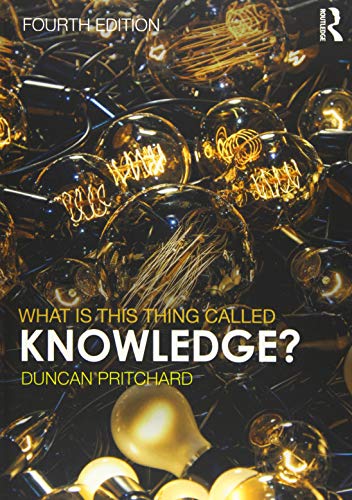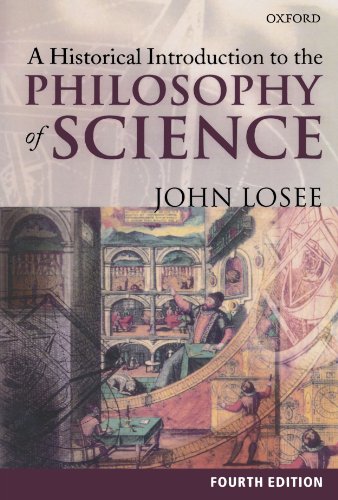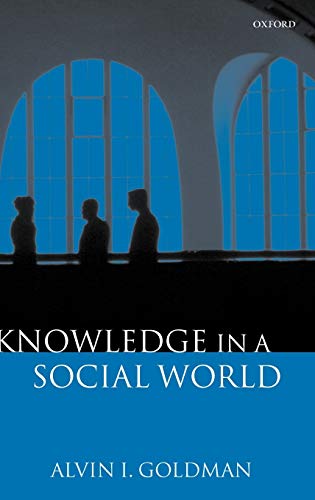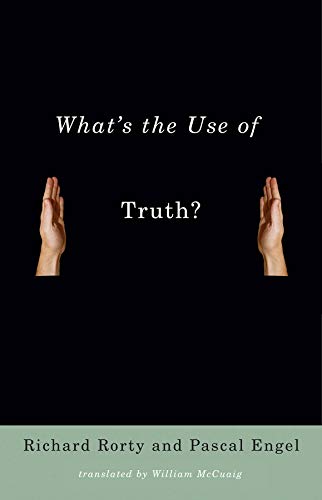Epistemology is the study of knowledge, justification and rationality. Here are some examples of epistemological questions: Is it wrong to believe something without good evidence? And if so, what counts as good evidence? As beings with limited cognitive faculties and prone to mistakes, do we really know anything at all or do we merely believe? These are the types of questions which have interested philosophers for centuries.
1
An accesible introduction covering the main topics of contemporary Epistemology without presupposing any familiarity. Another good readable introductions are Jennifer Nagel's Knowledge: A Very Short Introduction, and Alvin Goldman and Matthew McGrath's Epistemology: A Contemporary Introduction. Two more advanced introductions are Pollock and Cruz's Contemporary Theories of Knowledge (a little outdated) and Ernest Sosa's Knowledge (Princeton Foundations in Philosophy)
2
Although technically an introduction to the Philosophy of Science, this books covers some of the main topics in Epistemology from a historical perspective. Starting from Aristotle's view of science and logic, the book includes major epistemological programs with figures such as Descartes, Hume, and Kant, as well as contemporary philosophy of science. George Dicker's books on Kant and Hume are a great place to delve deeper into epistemology from the modern period. Three essential primary sources that the reader may want to review later are Descartes' Meditations on First Philosophy, Hume's Enquiry Concerning Human Understanding, and Kant's Prolegomena to Any Future Metaphysics.
3
An influential book bridging the gap between Epistemology and Ethics. By introducing the important notions of testimonial and hermeneutical injustice, the author showed the untapped potential of epistemological analysis for critical theory. More recent developments can be found in The Routledge Handbook of Epistemic Injustice put together by Ian Kidd and José Medina.
4
This book explores the different ways in which social institutions can be evaluated from an epistemological point of view. Alvin Goldman focus is on the way different kinds of practices are able to track truth. It is a good starting place before exploring themes like the somewhat technical recent literature on the epistemology of testimony, or more radical proposals to view knowledge as a social or collective phenomena as developed by authors such as Martin Kusch, Robert Brandom, Margaret Gilbert, the strong programme in sociology of science, and the recent extended epistemology paradigm lead by Duncan Pritchard. Readers may follow up with the collection Socializing Epistemology put together by Frederick F. Schmitt and the more recent Essays in Collective Epistemology compiled by Jennifer Lackey.
5
This is a short but enlightening debate between analytic philosopher Pascal Engel and pragmatist Richard Rorty. Engel argues that an objective notion of truth is important to understand the normativity of our linguistic and epistemic practices. Rorty contends that distinguishing between truth and justification (bound to some community standards) is a remnant of the past that serves no good, offering instead a constructionist relativism of a humanist sort. Readers interested in the topic may follow up with the compilation Truth: Engagements Across Philosophical Traditions by David Wood and José Medina, Philosophy and the Mirror of Nature by Richard Rorty, and Fear of Knowledge by Paul Boghossian.

1
An accesible introduction covering the main topics of contemporary Epistemology without presupposing any familiarity. Another good readable introductions are Jennifer Nagel's Knowledge: A Very Short Introduction, and Alvin Goldman and Matthew McGrath's Epistemology: A Contemporary Introduction. Two more advanced introductions are Pollock and Cruz's Contemporary Theories of Knowledge (a little outdated) and Ernest Sosa's Knowledge (Princeton Foundations in Philosophy)

2
Although technically an introduction to the Philosophy of Science, this books covers some of the main topics in Epistemology from a historical perspective. Starting from Aristotle's view of science and logic, the book includes major epistemological programs with figures such as Descartes, Hume, and Kant, as well as contemporary philosophy of science. George Dicker's books on Kant and Hume are a great place to delve deeper into epistemology from the modern period. Three essential primary sources that the reader may want to review later are Descartes' Meditations on First Philosophy, Hume's Enquiry Concerning Human Understanding, and Kant's Prolegomena to Any Future Metaphysics.

3
An influential book bridging the gap between Epistemology and Ethics. By introducing the important notions of testimonial and hermeneutical injustice, the author showed the untapped potential of epistemological analysis for critical theory. More recent developments can be found in The Routledge Handbook of Epistemic Injustice put together by Ian Kidd and José Medina.

4
This book explores the different ways in which social institutions can be evaluated from an epistemological point of view. Alvin Goldman focus is on the way different kinds of practices are able to track truth. It is a good starting place before exploring themes like the somewhat technical recent literature on the epistemology of testimony, or more radical proposals to view knowledge as a social or collective phenomena as developed by authors such as Martin Kusch, Robert Brandom, Margaret Gilbert, the strong programme in sociology of science, and the recent extended epistemology paradigm lead by Duncan Pritchard. Readers may follow up with the collection Socializing Epistemology put together by Frederick F. Schmitt and the more recent Essays in Collective Epistemology compiled by Jennifer Lackey.

5
This is a short but enlightening debate between analytic philosopher Pascal Engel and pragmatist Richard Rorty. Engel argues that an objective notion of truth is important to understand the normativity of our linguistic and epistemic practices. Rorty contends that distinguishing between truth and justification (bound to some community standards) is a remnant of the past that serves no good, offering instead a constructionist relativism of a humanist sort. Readers interested in the topic may follow up with the compilation Truth: Engagements Across Philosophical Traditions by David Wood and José Medina, Philosophy and the Mirror of Nature by Richard Rorty, and Fear of Knowledge by Paul Boghossian.
© Five Books 2026